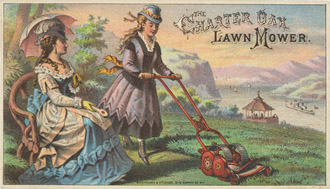One of the Commonest Questions…
Episode five of Testimony Of A Tundist
One of the commonest questions with which Tundists are taxed is, to quote Binder, “how does Tundism affect one's daily life?” There is a simple answer: we take frequent baths, eat large breakfasts, prune our shrubs, avoid cramp, polish our teeth with whetstones, gasp, trill, plunge pieces of metal into salt water, hack at planks, play ping pong, drive camels through the desert, wail, pen billets-doux, get cross, have pangs, collect postage stamps, micturate, peel onions and sob, knit balaclavas, cackle, preen, chirrup, hoot, and dust sand from the soles of our magnificent, bright and battering sandals. I dare say you could say the same, give or take the odd tinct or tinge.
Ten days after I was admitted to Tundism, albeit upon the lowest rung of the Ladder of Sibodnedwab, the gathering in the tower came to an end, in the usual way. Understand that there is much I cannot tell you. After the ritual [ ]ing and [ ]ing, and once the [ ] had been [ ]ed, the gathering broke up, and we went our separate ways. I was taken under the wing of an elderly Tundist named Plankton Chews, an amateur detective who roomed in a garret high in a house standing slap in the middle of a sinful quarter of Hoon.
Chews was to be my mentor, the guide who would steer me through the arcane and formidable doctrines of Tundism. The first six months I spent studying owls. Chews was a great one for bookish learning: he cared not whether I ever clapped eyes on a real owl. All I needed to know, he said, could be garnered from the thousands of books jammed tight on the shelves of the Tundist Owl Library, handily situated just around the corner from his garret.
A brief digression. No lift or other mechanical contrivance existed in the house to make Chews' garret accessible by my wheelchair, so a room was found for me on the ground floor of the toffee apple factory next door, its janitor being a great friend of Chews', having consulted the great detective some years before in connection with the episode which became known as The Perplexing Case Of The Wistful Leper, documented so thrillingly - and I am being sarcastic - by Chews' assistant Dr Boilbag in his famous compendia of the detective's singular adventures. My room was well-appointed, with many cushions, a kettle, plaster of Paris putti dangling from the ceiling, a Tilly lamp, a cast iron escritoire, mosquito nets, oodles of cutlery, and a stupendously complicated ventilation system. I lived there happily for some twenty years, until my incarceration, to which I have already alluded.
To resume: the importance of gaining a thorough knowledge of owls is addressed with characteristic perspicuity by Binder (chapter fifty four). This is what I learned during my months of study: the owl has a short, stout form, downy feathers, and a large head with a flat face. The eyes are round and staring, and have a fringe of stiff feathers around them: the bill is short, strong, and hooked: and the ears are very large and pointed forward. Some owls have tufts of feathers on the head which stand up like horns, from which they get the name of horned owls. During the daytime owls hide away in holes in trees, in caves, and in old buildings; but in the dusk of evening, when they see better than in broad daylight, they fly about looking for game. They live mostly on rats, mice, moles, squirrels, and other small quadrupeds, and on other birds; some of the smaller kind eat moths, beetles, and other insects. They catch their prey with their claws and not with their beaks; if it is small they swallow it whole at one gulp, the bones and hair or feathers being afterwards vomited up in a ball or wad, but if large they first tear their prey into pieces.
When by chance an owl comes out of its hiding place in the daytime, the little birds often attack it in flocks, and try to avenge themselves on their enemy, who kills so many of them by night. When thus attacked the owl ruffles up its feathers, wags its head with a stupid look, and shows its anger by snapping its bill; but as it cannot see well enough to fight, it has to bear the blows and pecks of its persecutors as well as it can. In ancient times hunters used to take advantage of this to catch little birds. After covering the twigs, bushes and trees with a kind of sticky glue called birdlime, the hunter would imitate the cry of an owl, and the birds, flocking together to fight their enemy, would perch on the twigs and stick fast, so that they were easily caught.
Owls are found in nearly all parts of the world. In my country there are only six or seven species, and some even of these are rare, and are seen here only at certain times of year. The family of Strigidae, to which all owls belong, may be divided into three classes: the typical, the horned, and the hawk owls. The typical owl is strictly a nocturnal bird, with complete discs around the eyes, and a large external ear. The horned owls have two horn-like tufts of feathers on the head, and a smaller external ear. In the hawk owl, the external ear is still smaller, while the discs around the eyes and the tuft-like horns are wanting. In Tantarabim there are about forty kinds, including the burrowing owl, the chocolatey owl, and the triumphantly vindictive owl.
In ancient times the owl was thought to be a very wise bird, and the Buttonites made it the emblem of wisdom. The Windigos and Parpalepts also hold it in great respect, because it is said that Windilep Parpago, the founder of their empire, was once saved by an owl. After losing a battle she was forced to flee her enemies and hide herself in a wood. An owl perched in the very clump, or thicket, where she was lying low, and her pursuers, thinking that the owl would have been frightened away if she had gone in there, did not poke at it with their lances nor slash it to ribbons with their brightly gleaming cutlasses, and so passed her by. For a long time the Windigos used to wear an owl's feather in their hats, and some Parpalept tribes still worship a mud idol formed in the shape of an owl.
The owl belongs to the order raptores, or birds of prey, and is, of course, of Tund. There is more, much more, but the Tundist Owl Library is still standing, and has been thrown open to Strobs, so if you are keen to pursue this brief introduction to strigine studies, you may consult a map and bound towards the Library armed with a very sharp pencil and your best notebook.
To be continued…




